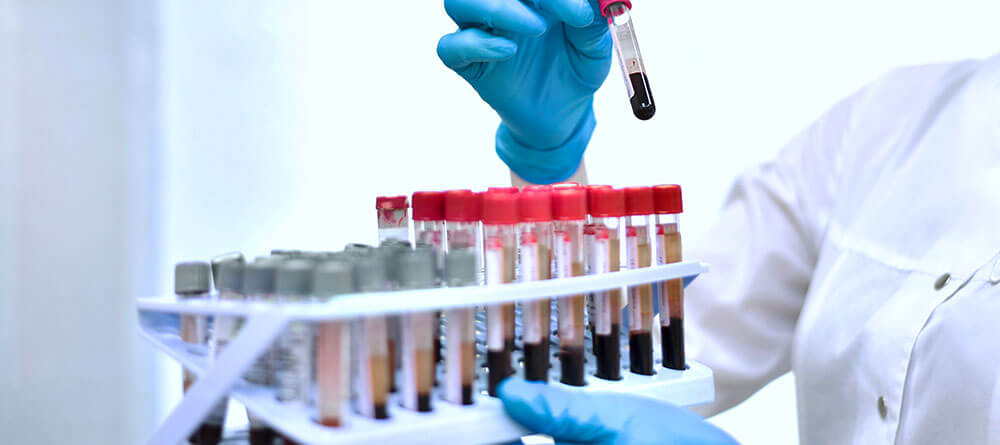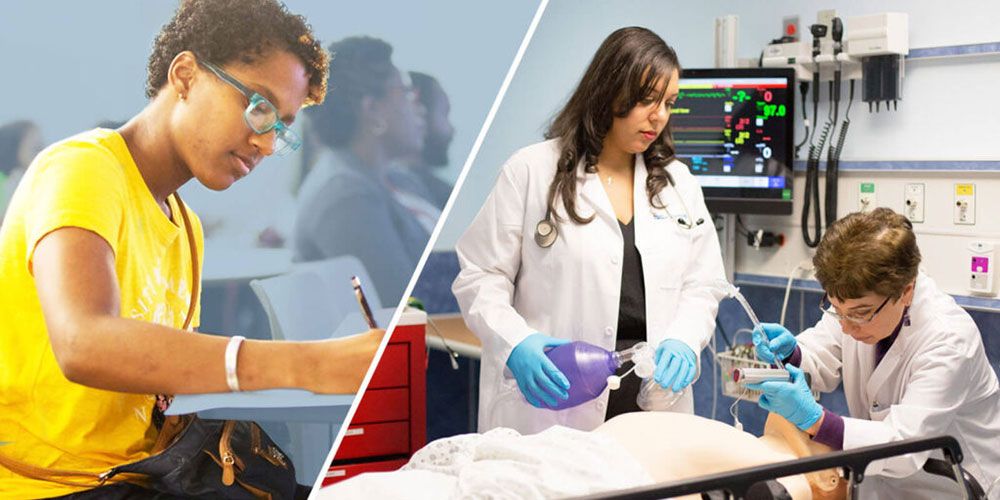It’s no secret that admission to medical school can be competitive. You’re likely pretty familiar with the basic requirements like:
- Maintaining a strong GPA
- Good MCAT scores
- Obtaining letters of recommendation
- Gaining clinical exposure
- Writing a compelling personal statement
But if you want to push your medical school application beyond mediocre, you’ll need to learn how to make each element as strong as possible.
Crafting an effective application is all about setting yourself apart from an equally qualified applicant pool. Dr. Ryan Gray, founder of Medical School Headquarters, has advised countless students who’ve gained acceptance to medical school. Dr. Gray provided some of his best medical school application tips.

How to make your medical school application stand out
“I think too many students treat the aspects of the application like a checklist,” Dr. Gray notes, explaining that the best way to build an impressive application is to avoid looking at medical school requirements as a rigid list of boxes you’ll need to check. Each element is important.
The following strategies can make a big impact during the MD program application process.
1. Focus on school first
The road to medical school is long. There are several aspects that make up a completed application, and some of them take a considerable amount of time. One of the most helpful pieces of advice Dr. Gray offers to pre-med students is to pace yourself.
“One of the biggest mistakes I see with students, especially early on, is when they try to do too much too fast,” he warns. If you overload your schedule with various activities and volunteer experiences in hopes of bolstering your medical school CV, it’s possible your academic performance could suffer—and that won’t bode well when it comes time for an application committee to review your transcripts.
Doctor of Medicine (MD) programs are looking for students who will be able to handle the academic rigor of medical school. While your GPA won’t be the only thing they consider, it’s important to remember that it can still carry a lot of weight. According to the Association of American Medical Colleges (AAMC), the average GPA for medical students who were accepted into MD programs in 2023 was 3.64.
If you’re looking for ways to improve or maintain your GPA, Dr. Gray suggests doing a bit of extra work to learn how to manage your time and find the types of study methods most effective for you. “As soon as you can master those things and you have evidence that your grades are going to be good, you can start thinking about those other requirements,” he says.
2. Be consistent with your medically related experience
Many pre-med students wonder how many hours of clinical experience they’ll need. Since there isn’t a concrete answer to that question, students should focus on the quality of those clinical experiences.
Admissions teams often look for consistency and prolonged interest in those experiences. For example, a student might acquire a large number of hours during their first two year of college, but not have any experience during the last two.
Dr. Gray suggests that could be a major red flag for admissions teams. The last thing you want is for a medical school to question your commitment to becoming a physician.
“Those types of things are really there for the student to prove to themselves that this is what they want,” Dr. Gray explains. Clinical exposure is a helpful method for gaining hands-on experience, but it’s also the most effective way to confirm that pursuing a career in medicine is the right path for you.

3. Gain research experience
Most think of medically related experience as shadowing physicians or volunteering in a clinic. While clinical exposure like that can be invaluable for pre-med students, another way to gain experience in the medical field is to participate in research efforts.
The idea of pursuing medical research experience can seem intimidating on the surface. “A lot of students worry that you have to have a publication, you have to be first author, or you have to do a poster presentation,” Dr. Gray says. “None of that is really true.”
While MD/PhD programs do often emphasize research involvement, most medical schools don’t expect research experience from their applicants. However, if working with medical research is a consideration for you, it can serve as a compelling component of your application that may help you stand out to admissions committees.
It’s also helpful to note that seeking out these opportunities early on will help you build a foundation for strong medical research skills, bolstering your residency applications in the future.
4. Demonstrate what you’re passionate about
Realistically, you know you’ll be applying to medical school amidst a sea of other students who have also obtained strong GPAs, impressive test scores, and a have range of related experiences. In that environment, you can letting your unique passions and interests shine through to stand out from the other applicants.
“Students should really try to focus on what they enjoy,” Dr. Gray offers. “And when they focus on that, it will come through in their application and their interview. It just helps make their application a little different.”
Your personal statement can be a great place to highlight the things you’re passionate about and the experiences that have helped shape your aspirations. It is also a place you can demonstrate your leadership and analytics skills.
Even if they’re not directly related to practicing medicine, there are numerous ways to tie your favorite activities or causes back to being a successful medical student. Being involved in student programs, leading university committees or other organizations can show commitment and discipline.
Medical schools look for a range of different competencies in promising applicants, from social skills to critical-thinking abilities to cultural competence. Whether you’re interested in music, sports, working with children, supporting community issues, or anything in between, there are numerous ways you can showcase the characteristics they’re seeking.

Other medical school applications tips to keep in mind
There are many unwritten rules pre-med students think they need to abide by, but it’s helpful to maintain some perspective. While schools scrutinize your grades and test scores considerably, that doesn’t mean you need to be perfect. In fact, an increasing number of medical schools have been adopting a holistic review process.
“If you have a bad semester or a bad year, or if you start off freshman year poorly because you’re away from home, it’s not the end of your medical career,” Dr. Gray encourages, noting that he’s advised numerous students who have overcome academic struggles and still found success in medical school.
It can also be important to go into your medical school experience with an open mind. The list of medical specialties and subspecialties is vast, and it’s perfectly acceptable—encouraged even—to enter your MD program unsure of the type of doctor you’ll become.
For International applicants, one other key element to consider is the performance on an English language test, such as the International English Language Testing System (IELTS) exam. Your IELTS score can have an impact on MD program admissions because it demonstrates the ability to use English competently which is critical for the study and practice of medicine in an international setting.
Prepare for your future as a physician
There’s no denying how challenging it can be to get into medical school. But with this advice on how to make your medical school application stand out, you should feel ready to put your best foot forward.
Are you ready to start the application process?
You can text the next steps by finding out the process to Apply to SGU.
*This article was originally published in August 2022. It has since been updated to reflect information relevant to 2024.


